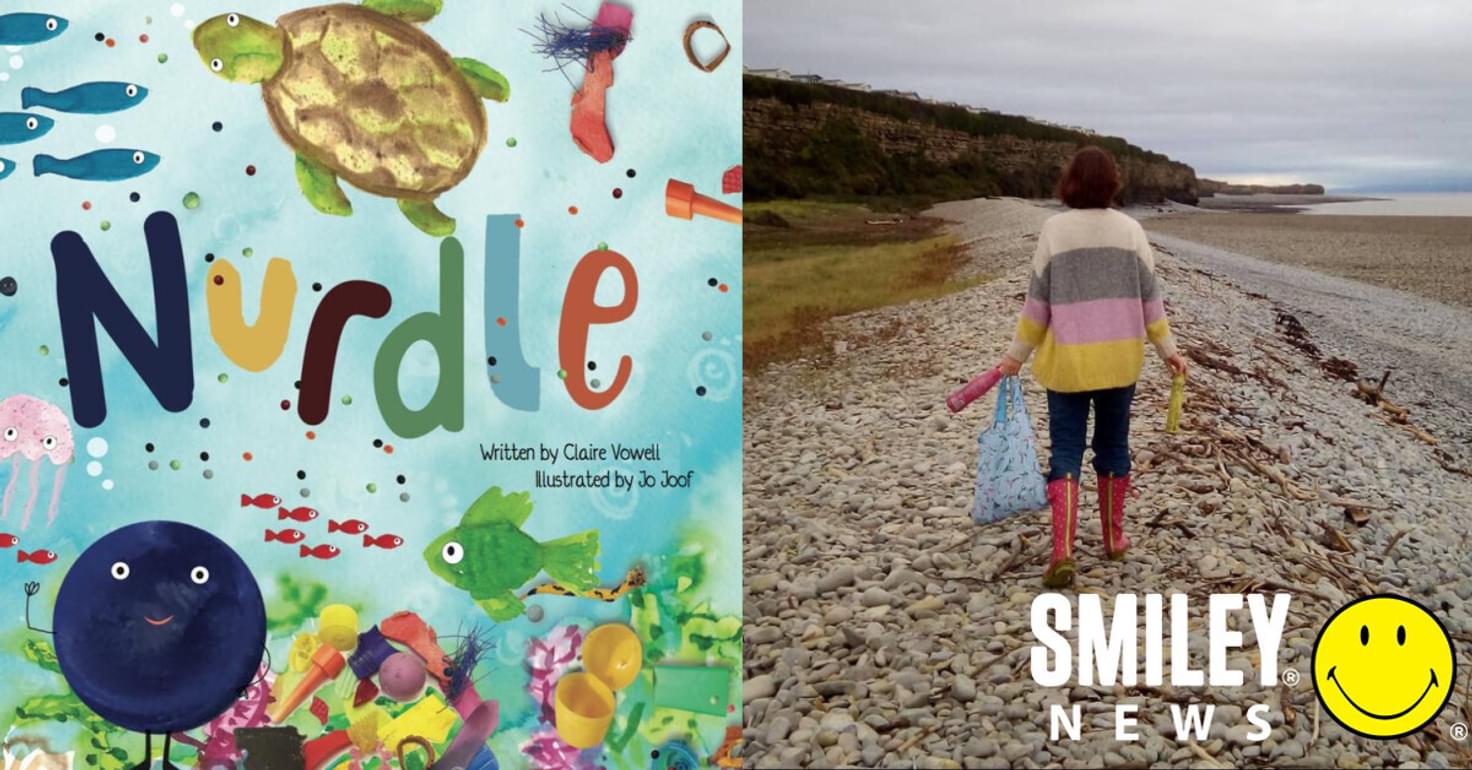
Words by Smiley Team
Primary school teacher Claire Vowell has always been passionate about beachcombing. Collecting the multicoloured debris that rolls ashore with the tide, she discovers small parts of car lights, buttons and other pieces that serve as inspiration for her teaching as well as her not-for-profit jewellery making business, Seaborn Designs.
For about five years Claire had participated in beach cleanups to tackle plastic pollution, transforming it into necklaces, earrings and more. But in the winter of 2019 she had an experience that led her to redouble her efforts.
Through online groups of beachcombers and environmentalists she received a call for help. One of the beaches near Southampton was covered in nurdle plastics, tiny pieces of plastic waste that had escaped from a factory nearby. They hadn’t even been made into anything before slipping out into the environment.
“We were literally crying our eyes out on this beach,” she recalled, “and it was then that I started thinking that I’ve got to take this to the next level.”
She started bringing pieces of plastic into her year three class to provoke discussion among her pupils and educate them about ocean plastic waste.
“Sharing knowledge with the next generation is important because they are the ones who are going to make or break the planet. They also get very indignant and are really good at pressuring their parents. I really believe that future generations are our salvation,” she said.
To assist with her lessons on plastic waste, she decided to write children’s books. Illustrated using pieces of plastic she had collected, the books personify the nurdles as characters who don’t want to harm the planet and are terribly sad about doing so.
Primarily concerned with collecting microplastics, Claire cleans, sorts and transforms this most harmful form of plastic waste into jewellery to sell via her business.
Distraught at the sight of online photos depicting dead turtles filled with plastic waste, she decided to create turtle shaped pendants. Last year’s lockdown inspired her to add rainbow coloured pieces to her collections, in thanks to the NHS workers who have saved so many lives throughout the pandemic.
While ten per cent from the price of each item sold goes towards the Marine Conservation Society, the rest covers the production of her book series.
If you wish to make a difference and tackle the rising amount of plastic waste in our oceans you can join or donate directly to the Marine Conservation Society here.